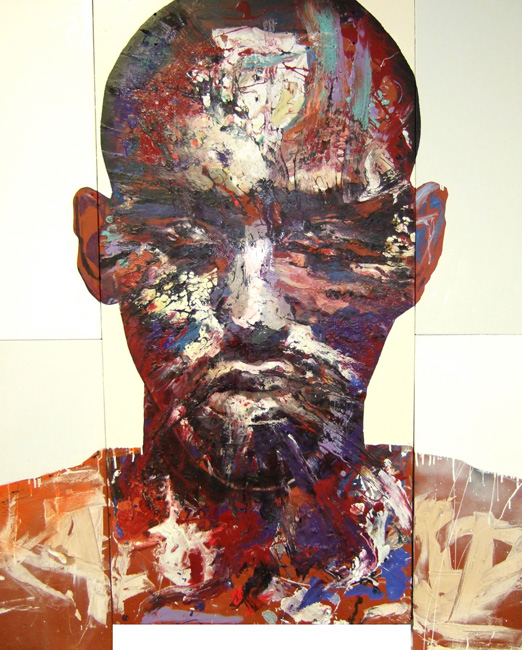The Golden Scales by Parker Bilal
Published January 31st 2012 by Bloomsbury USA (first published January 2nd 2012)
ISBN 1608197948 (ISBN13: 9781608197941)
Buy it here
It was the first time in a long time that a librarian so excitedly pressed a book into my hands and promised me I wouldn’t regret reading it. I was amused yet skeptical, and the author being Sudanese didn’t really heighten my hopes since no one since Tayib Salih, in my opinion, has written something of originality and substance. Yet I do not exaggerate when I say from the very first to last page I was utterly enthralled. From story, setting, characters, and style Jamal Mahjoub has found and made a place for himself in the genre of mystery. ‘Golden Scales’ is the first novel of the ‘Makana’ series written under the pseudonym Parker Bilal.
Our protagonist, Makana, is ever complex, damaged, and in almost every scene glumly smoking a cigarette. We never know the full name of our hero, but it matches the scenario of his backstory; a former Police Inspector in Sudan who had to suddenly flee due to a mysterious past that is revealed gradually throughout the book. I was a bit taken aback by the author’s choice of our hero’s name, because ‘makana’ in colloquial Sudanese is ‘machine’. As I was reading the book I would complain at how absurd and just ill befitting the name was. Thankfully, my father heard me. He tells me, ‘Of course Makana is a name! The Grandfather of our Sheikh of our village was named Makana. It means they are in constant motion, not just in the body, but the mind.’ Which perfectly describes Mr. Mahjoub’s character. Tall and lanky, if Makana isn’t out and about digging for information, his mind is constantly buzzing with a case, his surroundings, and his dark memories. 
Although the story is mostly set in Cairo in the late nineties, we see snippets of Sudan through the memories of Makana. These are not the tinted rosy memories of how people dressed, and how the streets of Khartoum were pristine and orderly. These are the memories of a former Police Inspector who took his profession in solving cases of murder seriously. It was a time when there was a system that followed law, a law that was respected and feared by all. Where there were crime scene etiquettes, and reasoning through science & logic. We then witness the demise of that with the new regime, which immediately replaces authoritative figures within Makana’s unit with nobodies who lacked any sort of skill or professionalism, only their ability to obsequiously brown nose. And forensics & investigating skills replaced with twisted, sick assumptions paired with a harsh and unbending dogma. While crimes in the past were more clear cut, Makana notices they have become sinister and political in motive. One heart-wrenching passage reflects this phenomena:
The second murdered woman was found in the scorched yellow grass near a dusty patch of ground where the boys played football. Metal goalposts without nets were the only indication of what went on there. The girl was naked. The students who had found her had covered the body with sheets of newspaper that they had weighed down with stones. They seemed outraged about having to witness such a sight, as if the dead girl had decided to have herself raped and murdered just to cause them personal offence. ( p. 257)
Another scene that stands out in my mind is of Muna, Makana’s wife, discussing with him these ongoing changes. Makana is unable to come to grips that his beloved system was on the brink of a terrible collapse;
The wife of Makana, Muna, tells him;
‘You don’t understand. These people care nothing for your rules, your sense of duty. They want power, and to get it they will sweep you away… you and your department, even the law itself. None of that means anything to them.’
‘You’re wrong. There is such a thing as the rule of law. There is a constitution.’
‘They will rewrite the constitution to suit themselves.’ (p. 252)
I won’t deny that I was more interested in Makana’s past than the ongoing crime that he was trying to solve as a downgraded private detective dealing with a case of a kidnapping and a deadly rivalry set in the chaotic streets of Cairo where extreme obnoxious wealth rubbed shoulders with extreme back breaking poverty. But that doesn’t lessen my appreciation of Mr. Mahjoubs ability to interweave such two distinct societies seamlessly, where the story isn’t too ‘Egyptian’ or ‘Sudanese’. And what is more exciting is that this will be a seven part series (the second & third in the series, Dog Star Rising, & The Ghost Runner are already out) , where we will witness the Arab Spring and Sudan’s ongoing demise through Makana’s eyes.
We finally have a hero who befits our country. He is not flashy, nor awe inspiring. Just an expatriate turned refugee made to feel like a fugitive forever waiting for a chance to return home.
And we’re all just trying to get home.

